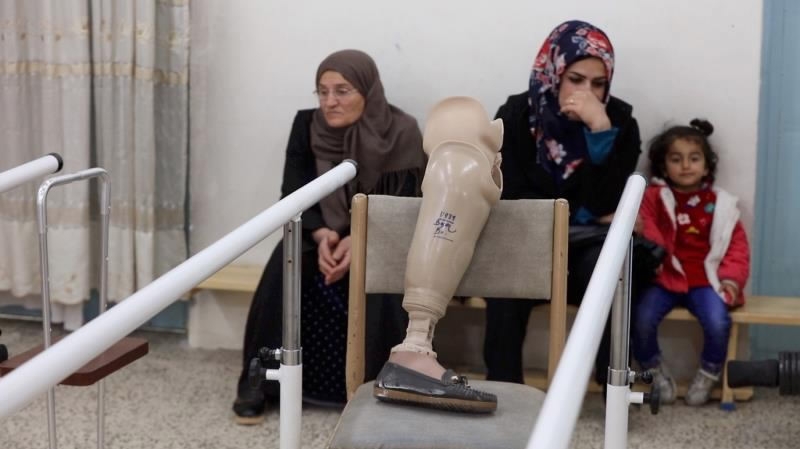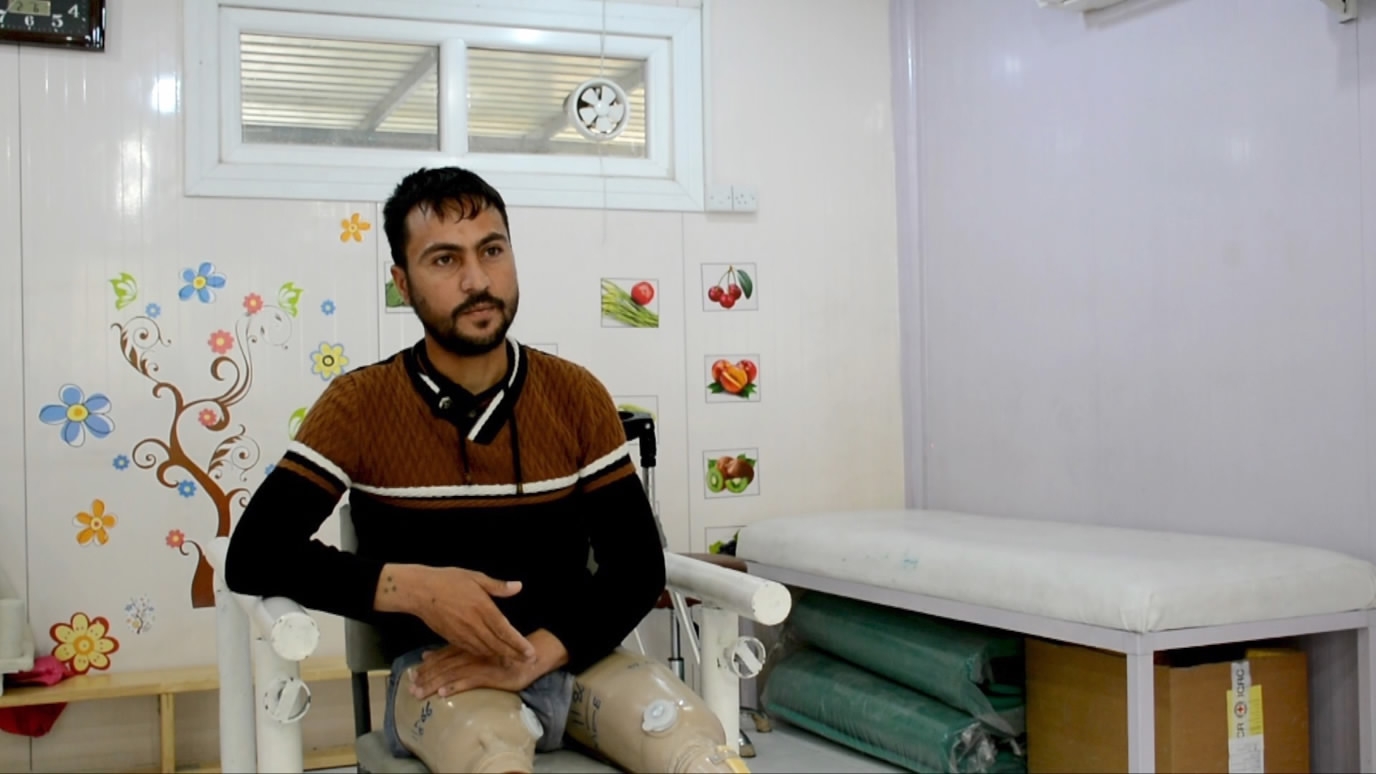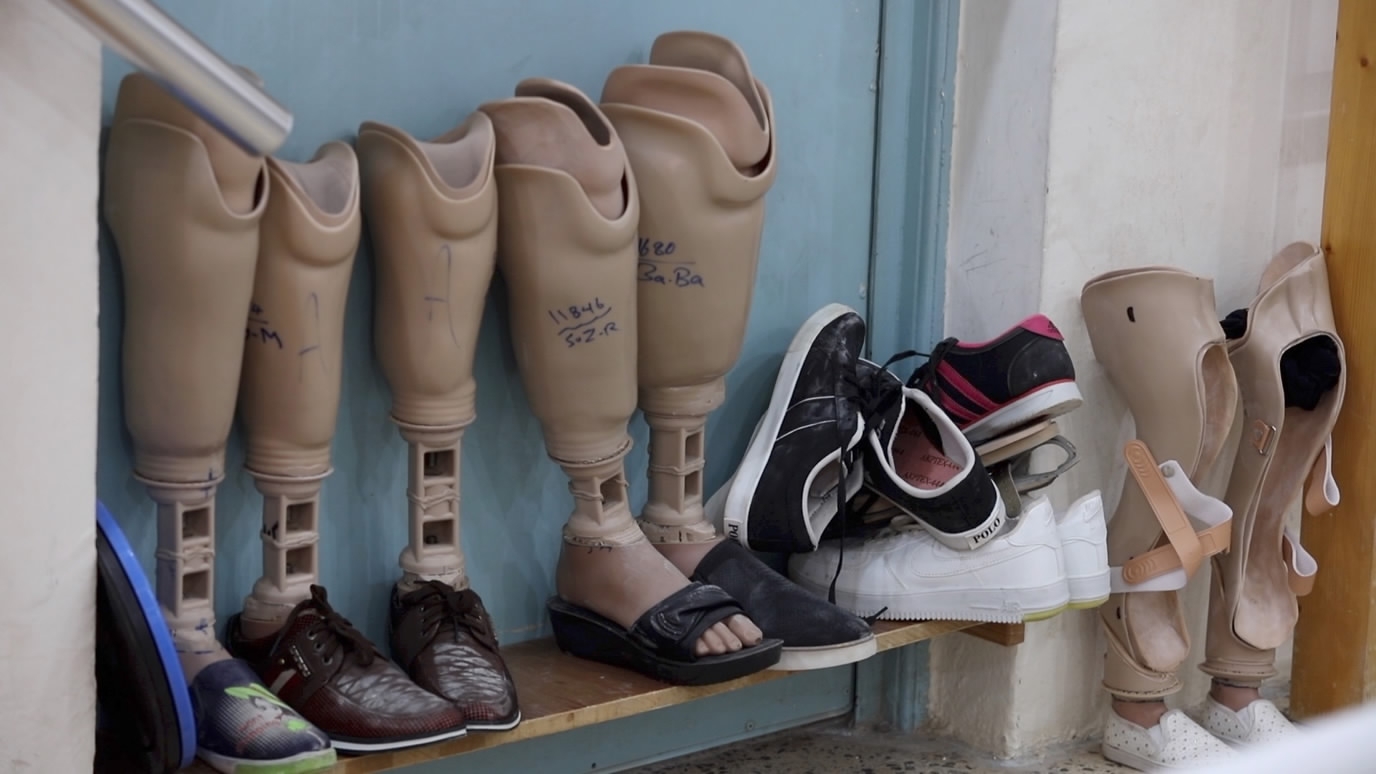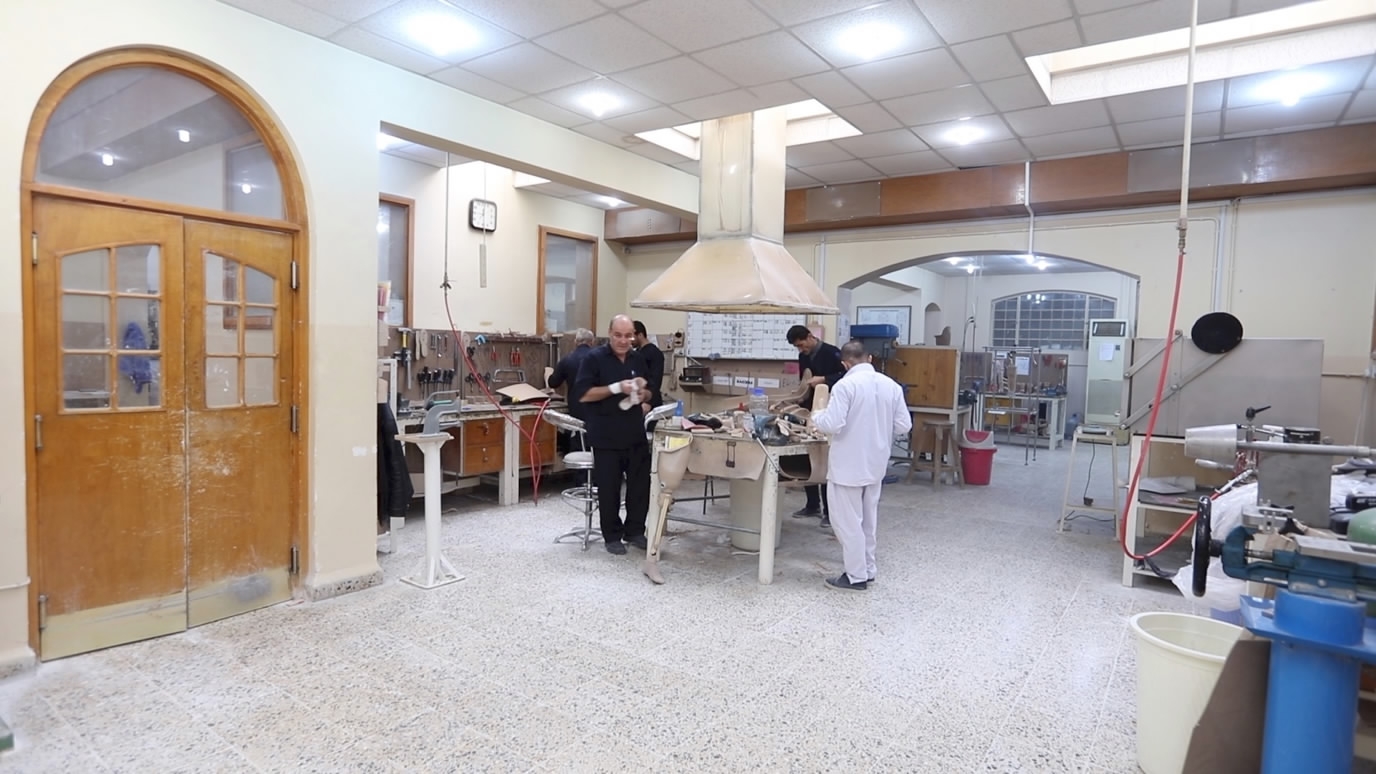
World
20:01, 26-Feb-2018
Iraq in Recovery: ICRC rehab center replaces lost limbs
Meng Qingsheng

Tens of thousands of Iraqis have become victims of explosive devices left behind by decades of conflict. Many have lost body parts and find it difficult to adapt to their changed circumstances. The situation has worsened following three years of fighting against ISIL militants.
Erbil Physical Rehabilitation Center was set up by the International Committee of the Red Cross (ICRC) in 1996. Over the 22 years since then, it has treated more than 12,500 patients and provided more than 18,000 prosthetic and orthotic mobility aid devices.

Ali Ayed Attieh receives training at ICRC Erbil physical rehabilitation center. /ICRC Photo
Ali Ayed Attieh receives training at ICRC Erbil physical rehabilitation center. /ICRC Photo
Due to the intense battle with ISIL over Mosul, the number of patients increased in 2017. The center received 5,879 patients, 1,321 of whom were displaced people living in Hassan Sham and Khazer camps. The center also treated 289 refugees, according to manager Srood Suad Nafie.
Ali Ayed Attieh lived in the town of Ramadi of Anbar Province. When the conflict started, he left his home and became displaced in Erbil, capital of Iraq’s Kurdistan Region. He decided to return home after hearing the news that his hometown was “liberated” from ISIL control. When he arrived, he saw his house had been destroyed. When he walked through the door, he stepped on an explosive device that blew his legs off.

Most of the prosthetic parts are made of polypropylene, an affordable and recyclable material. / CGTN Photo
Most of the prosthetic parts are made of polypropylene, an affordable and recyclable material. / CGTN Photo
After two operations at Ramadi hospital, he came back to Erbil and contacted the ICRC Erbil Physical Rehabilitation Center where he got prosthetic legs. He is now continuing his rehab exercise at the center.
Ali told CGTN that he has started feeling better on both physical and psychological levels. But he is worried about the lack of income to support his family as he is unable to work now.

Professionals are making prostheses and orthotics inside the workshop of ICRC Erbil Physical Rehabilitation Center. /CGTN Photo
Professionals are making prostheses and orthotics inside the workshop of ICRC Erbil Physical Rehabilitation Center. /CGTN Photo
Erbil rehab center produces two types of devices: prosthetics, replacing a missing body part; and orthotics, assisting a weak body part. They are provided for free to registered patients. As explained by Ghassan Husni Ali, team leader of the prosthetics and orthotics department, most of the parts are made of polypropylene, as it’s light and cheap and will benefit more people.
330km

SITEMAP
Copyright © 2018 CGTN. Beijing ICP prepared NO.16065310-3
Copyright © 2018 CGTN. Beijing ICP prepared NO.16065310-3